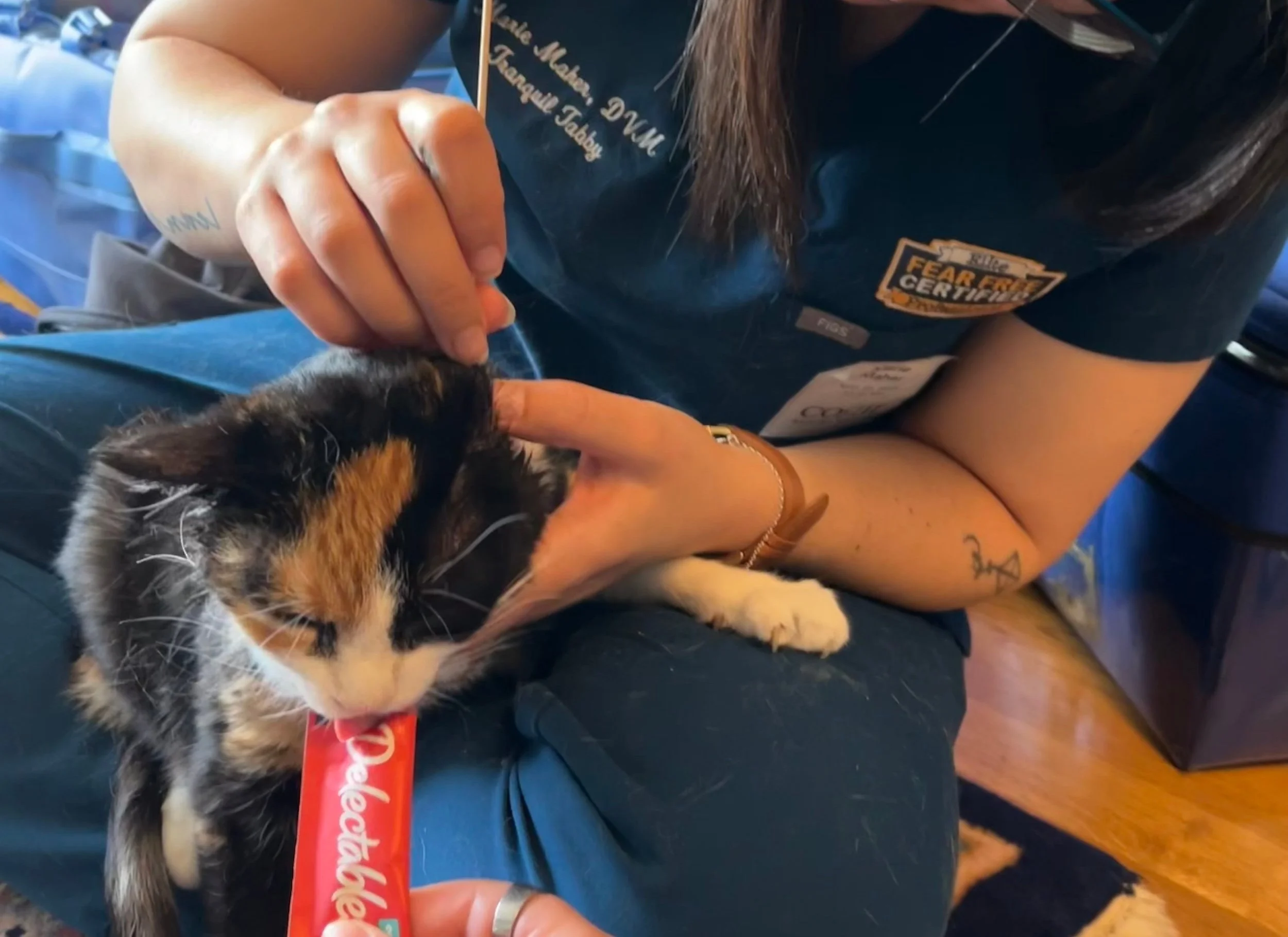When to Seek Veterinary Care: Common Signs of Illness in our Feline Patients
Cats are known for their independence and their ability to mask signs of illness, making it challenging for folks to determine when their feline friend needs medical attention. Early detection and treatment of health issues can make a significant difference in your cat's well-being. Here are some common concerns that indicate it’s time for your kitty to see a vet!
1. Changes in Appetite or Weight
Loss of Appetite: A sudden or gradual decreased interest in food can be a sign of various health problems, including dental issues, gastrointestinal issues, or systemic diseases like kidney failure.
Increased Appetite: An uncharacteristically ravenous appetite might indicate hyperthyroidism, diabetes, or other metabolic disorders.
Weight Changes: Unexplained weight loss or gain should always be investigated to rule out underlying conditions.
2. Lethargy and Decreased Activity
If your cat is unusually lethargic, sleeping more than usual, or seems disinterested in their surroundings, it could be a sign of illness or pain. Conditions ranging from infections to chronic diseases can cause lethargy.
3. Vomiting and Diarrhea
Occasional vomiting or diarrhea can occur due to dietary indiscretion, but acute or persistent episodes warrant a vet visit. These symptoms can indicate gastrointestinal issues, parasites, or even more severe conditions like pancreatitis or cancer. While a small amount of blood in the stool can be benign, seek care if there is concern or if there is blood in the vomit.
4. Changes in Urination and Defecation
Frequent Urination: This could signal conditions such as kidney disease, diabetes, or a urinary tract infection.
Straining to Urinate: This is a red flag for urinary blockages, which are life-threatening emergencies that require immediate veterinary care.
Changes in Litter Box Habits: Any alterations in your cat’s bathroom routine, such as urinating or defecating outside of the box, can indicate underlying medical conditions such as a urinary tract infection or arthritis.
5. Respiratory Issues
Coughing and Sneezing: These symptoms can result from respiratory infections, asthma, or other respiratory conditions.
Difficulty Breathing: Open-mouth breathing, rapid or labored breathing, and wheezing are serious signs that require emergency veterinary care.
6. Skin and Coat Changes
Hair Loss and Scratching: Excessive grooming, bald spots, and scratching can indicate allergies, parasites, or skin infections.
Lumps and Bumps: Any new growths or swellings should be checked to rule out tumors or abscesses.
7. Eye and Ear Issues
Eyes: Tearing, discharge, swelling, squinting, or redness can be signs of infections, injuries, inflammation in the eye, or other conditions.
Ear Scratching and Discharge: Head shaking, scratching at the ears, or visible discharge can indicate ear infections, mites, or other issues.
8. Behavioral Changes
Aggression or Withdrawal: Sudden changes in behavior, such as increased aggression or hiding, can be signs of pain, anxiety, or other conditions.
Vocalization: Increased or unusual vocalization may indicate distress, pain, or medical conditions such as hyperthyroidism.
9. Teeth and Oral Cavity:
Bad Breath: While “kitty breath” isn’t usually pleasant, particularly foul-smelling breath can indicate dental disease, oral infections, or systemic issues like kidney disease.
Tooth Grinding: Chewing food with the head held sideways and tooth grinding typically indicates oral pain which can be due to periodontal disease, oral infections, or other issues.
Missing Teeth: Missing teeth in cats are very commonly a sign of a common and painful condition called tooth resorption.
10. Mobility Concerns
Limping or Reluctance to Move: Any signs of limping, stiffness, or reluctance to jump or climb should be evaluated to rule out injuries, arthritis, or other musculoskeletal issues.
Wobbliness: Cats are very agile creatures with fantastic balancing skills. Cats who are newly or progressively unsteady on their feet should be evaluated for conditions including neurologic disease.
When in Doubt, Seek Professional Advice
Cats are masters at hiding discomfort, so even subtle changes in behavior or health can be significant. Regular veterinary check-ups are essential for catching potential health issues early. If you notice any of the symptoms mentioned above, don’t hesitate to contact your veterinarian for advice and evaluation. Early intervention can lead to better outcomes and help ensure your feline friend stays healthy and happy!


